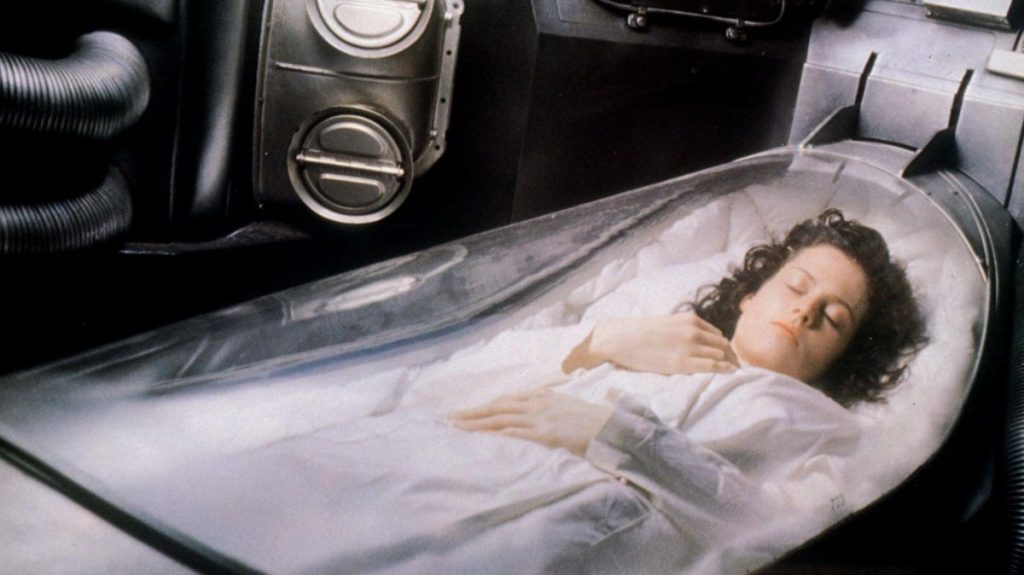Scientists have blasted the brains of mice and rats with ultrasound to knock them into a hibernation-like state, and the researchers say the technique could one day be used on injured humans in critical care or on astronauts taking long-haul spaceflights.
The first-of-its-kind method — which works by firing ultrasound at a region of the brain responsible for controlling metabolism and body temperature — reduced the rodents’ average body temperatures by up to 6.25 degrees Fahrenheit (3.5 degrees Celsius) while also slowing down their heart rates and reducing their oxygen consumption.
The results of the animal study could provide researchers with some clues for how hibernation-like states, or torpor, could be safely and non-invasively induced in humans. The researchers published their findings Thursday (May 25) in the journal Nature Metabolism.
“If successfully demonstrated in humans, this technology holds significant potential for medical applications, particularly in life-threatening conditions such as stroke and heart attacks,” lead study author Hong Chen, an associate professor of biomedical engineering at Washington University in St. Louis, told Live Science. “Inducing a torpor-like state in these patients might extend the treatment window and enhance their chances of survival,” she said.
Related: Ultrasound treatment ‘jump-started’ the brains of 2 people in coma-like state
When food is scarce or the weather too cold, some mammals, birds, insects, amphibians and fish preserve their energy by involuntarily entering a state known as torpor, a mysterious and temporary condition marked by a drastically-reduced metabolism.
While in a torpid state, an animal’s body temperature and heart rate drop dramatically and its blood flows slower. During hibernation (a voluntary act prepared for ahead of time) animals string together multiple bouts of torpid states. They slow their heart rates from hundreds of beats per minute to a mere handful; breathe once every ten minutes or more; and dim their brain activity until it is undetectable.
In fact, so few unconscious functions are performed during torpid periods that many hibernating animals have to periodically awaken to catch some proper sleep.
Torpor’s profound physiological changes drastically reduce the energy that animals need to survive. It’s perhaps not surprising, then, that scientists have long been keen to figure out if these benefits could be conferred to humans in critically-injured states, or to people bound on long and lonely flights to distant planets.
In fact, records of the potential medical usefulness of hypothermia, a normally dangerous drop in body temperature, date as far back as ancient Egypt. It was also observed by Napoleon’s chief surgeon Baron de Larrey during the failed French invasion of Russia in 1812. Lerrey packed limbs with ice before amputating them, and noticed that wounded men died quicker by the warmth of the fire than near the cold. In modern times, surgeons use hypothermic states to increase patients’ survival rates during heart and brain surgeries.
But whether humans, who do not naturally enter torpor states, can be artificially and safely pushed into them remains an open question.
To investigate this possibility, the scientists behind the new study created a wearable ultrasound hat that they initially glued onto the heads of mice. After being switched on, the device beamed ultrasound waves into a part of the rodents’ brains called the hypothalamus preoptic area, a critical brain region for controlling body temperature and sleep in many animals and the activation of hibernation and torpor states in hibernating animals.
After being exposed to the ultrasound bursts, the mice immediately entered a torpor-like state, in which their body temperatures, heart rates, and oxygen intakes drastically declined. The mice became sluggish, and ate significantly less food.
By repeating the ultrasound bursts every time the mices’ body temperatures increased above a target level, the scientists were able to keep the mice in these torpor-like states for up to 24 hours without observing any signs of injury or discomfort. When the ultrasound hat was switched off, the mices’ normal body temperatures and levels of activity recovered in less than 90 minutes.
Infrared thermal images of a mouse being placed into a torpor-like state with ultrasound. (Image credit: Chen et al)
After repeating their experiment with 12 rats, the scientists saw that the device also caused the rats’ body temperatures to decrease, although by a more shallow drop of up to 3.57 F (2 C). This means, the study authors wrote, that the hat could still work on mammals that don’t naturally enter torpor — including humans.
“Further research is still required to determine the safety and feasibility of this approach in humans,” Chen said. “We could envision astronauts wearing a helmet-like device designed to target the hypothalamus region to induce a torpor-like state.”
However, many hurdles remain before torpor-inducing ultrasound devices could be used to buy doctors time during surgeries or to place astronauts in a kind of suspended animation.
The researchers found that their ultrasound hat appears to bring about a torpor-like state by stimulating a particular ion channel — a passage for charged particles — inside rodent brain cells, but natural torpor observed in the wild is also accompanied by other changes at the hormonal and molecular levels that are not well understood. Long-term hibernation’s effects on the brain are similarly unclear, yet some studies raise the possibility of it in hibernating animals.
“It is remarkable how little we know about the effects of hibernation, especially prolonged, on brain function, synaptic connections or memories,” Vladyslav Vyazovskiy, a professor of sleep physiology at Oxford University who was not involved in the new study, told Live Science.
“Therefore, before we attempt to induce hibernation in humans, we first must make sure that we know how to return them ‘back’ intact,” Vyazovskiy said. “Until we have a full understanding of both causes and consequences of natural hibernation, the possibility of torpor in humans will, and should, remain in the domain of science fiction.”

